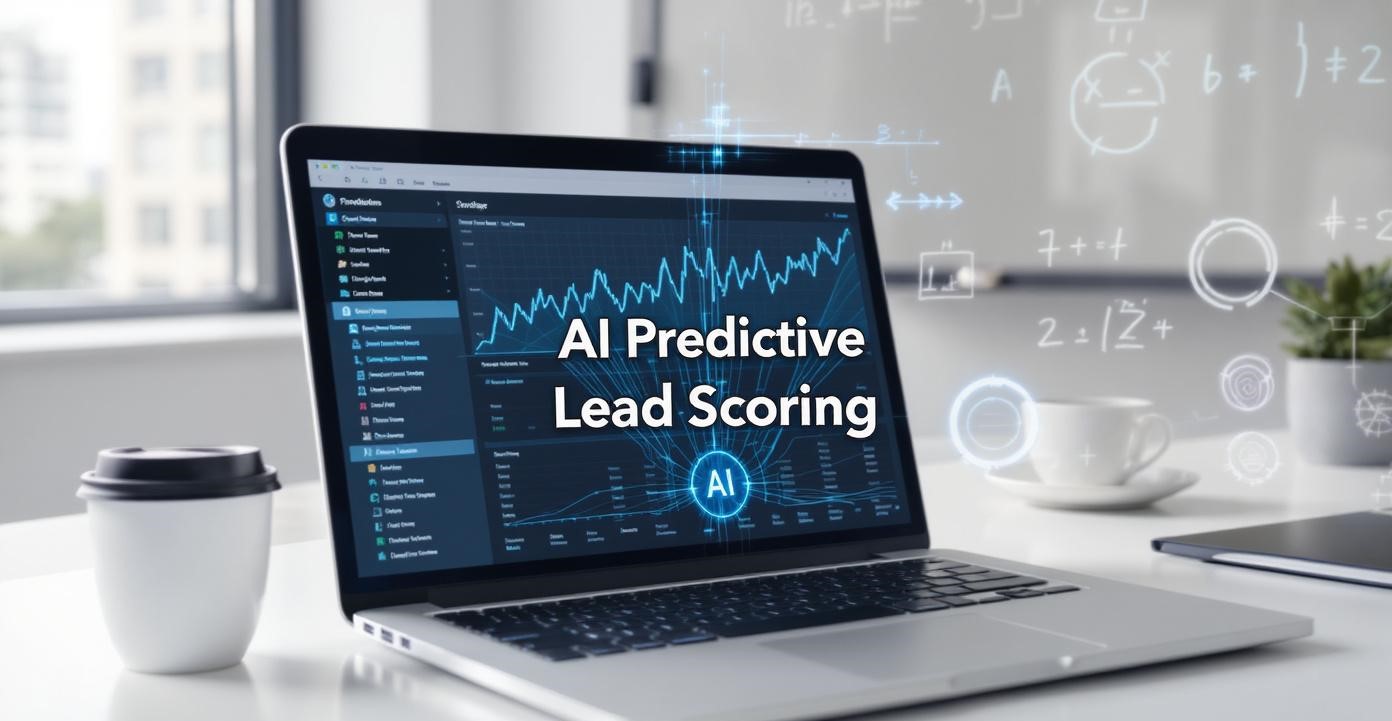In 2025, businesses are increasingly leveraging Predictive Lead Scoring powered by artificial intelligence to improve lead prioritization and conversion rates. Traditional lead scoring methods that rely solely on static criteria such as industry, company size, or job title often fail to capture subtle behavioral indicators of purchase intent. AI-driven predictive lead scoring combines historical data, behavioral analytics, and machine learning algorithms to accurately assess lead quality. This approach allows sales and marketing teams to focus on high-value prospects and optimize resources for better ROI. As ethical AI practices and data transparency continue to shape its evolution, predictive lead scoring will remain a cornerstone of intelligent B2B marketing, driving sustained growth and efficiency across industries.
Integrating Multi-Channel Data
AI predictive lead scoring excels at integrating data from multiple sources. CRM systems, email campaigns, website analytics, social media engagement, webinars, and transactional histories provide valuable insights into lead behavior. Manual aggregation of this data is inefficient and error-prone, but AI can consolidate and interpret information quickly. Machine learning models continuously update scoring predictions based on new data, ensuring that lead prioritization is always accurate and reflects current engagement patterns.
Behavioral Analytics for Accurate Scoring
Behavioral analytics is a fundamental component of AI-driven predictive lead scoring. AI tracks lead interactions such as content downloads, webinar attendance, website visits, and email engagement to determine lead intent. These actions are weighted and scored based on their likelihood to lead to conversion. AI can also determine the optimal time to engage with leads, allowing sales teams to connect when prospects are most ready to respond, improving conversion rates and campaign effectiveness.
Advanced Segmentation with AI
Segmentation has been transformed by AI, moving beyond traditional demographic or firmographic approaches. By analyzing behavioral, intent, and psychographic data, AI can create precise micro-segments of leads. Predictive lead scoring ranks leads within each segment according to their probability of converting, enabling highly targeted campaigns. For instance, two leads from the same industry may exhibit different engagement patterns, and AI scoring identifies which lead is more likely to convert, supporting personalized marketing strategies.
Natural Language Processing for Enhanced Insights
Natural Language Processing (NLP) enhances predictive lead scoring by analyzing unstructured data from emails, chat conversations, social media posts, and customer feedback. NLP detects sentiment, intent, and engagement signals that improve scoring models and segmentation strategies. These insights allow marketing and sales teams to interact with leads more effectively, delivering personalized communications that increase the likelihood of successful conversions.
Aligning Marketing and Sales
AI-driven predictive lead scoring improves alignment between marketing and sales teams. Historically, inconsistencies in defining marketing-qualified leads (MQLs) and sales-qualified leads (SQLs) caused inefficiencies. AI scoring provides a consistent, data-driven approach to lead prioritization, reducing conflicts and ensuring both teams focus on high-value prospects. Marketing teams can generate high-scoring leads while sales teams concentrate on engaging the most promising prospects, boosting collaboration and overall performance.
Optimizing Resource Allocation
Predictive lead scoring powered by AI enables better resource allocation. Identifying high-potential leads ensures marketing and sales efforts are focused on activities that generate the highest ROI. This reduces wasted effort on low-value leads and enhances overall efficiency. In competitive B2B markets, precision in targeting high-value prospects provides a significant advantage in driving business growth.
Continuous Learning and Model Adaptation
AI systems for predictive lead scoring continuously learn from new data. Machine learning algorithms adjust scoring parameters based on lead outcomes, improving accuracy over time. This continuous learning process ensures that predictive lead scoring remains relevant as customer behavior and market conditions evolve. Companies can leverage these insights to refine segmentation, optimize campaigns, and enhance lead management strategies.
Scenario Analysis and Forecasting
AI-driven predictive lead scoring enables scenario analysis and forecasting. Marketing teams can simulate various engagement strategies to predict potential impacts on conversion rates. This proactive approach minimizes guesswork and allows campaigns to be executed based on reliable insights. Scenario modeling improves resource allocation and ensures marketing initiatives are optimized for maximum results.
Ethical AI in Lead Scoring
Ethical considerations are critical when using AI for predictive lead scoring. Organizations must ensure scoring models are unbiased, fair, and transparent. Regular audits help prevent unintentional exclusion of certain demographics and ensure equitable treatment of all leads. Responsible AI practices enhance trust with prospects, strengthen brand reputation, and promote sustainable marketing practices.
Future of AI in Lead Scoring and Segmentation
The future of predictive lead scoring involves integration with marketing automation, account-based marketing (ABM), and customer data platforms (CDPs). AI insights connected to campaign execution enable real-time, personalized interactions at scale. Integrated systems streamline scoring, segmentation, and engagement, allowing businesses to execute highly effective campaigns and achieve superior conversion outcomes.
Read Full Article : https://acceligize.com/featured-blogs/how-ai-is-shaping-predictive-lead-scoring-and-segmentation-in-2025/
About Us : Acceligize is a global B2B demand generation and technology marketing company helping brands connect with qualified audiences through data-driven strategies. Founded in 2016, it delivers end-to-end lead generation, content syndication, and account-based marketing solutions powered by technology, creativity, and compliance.
